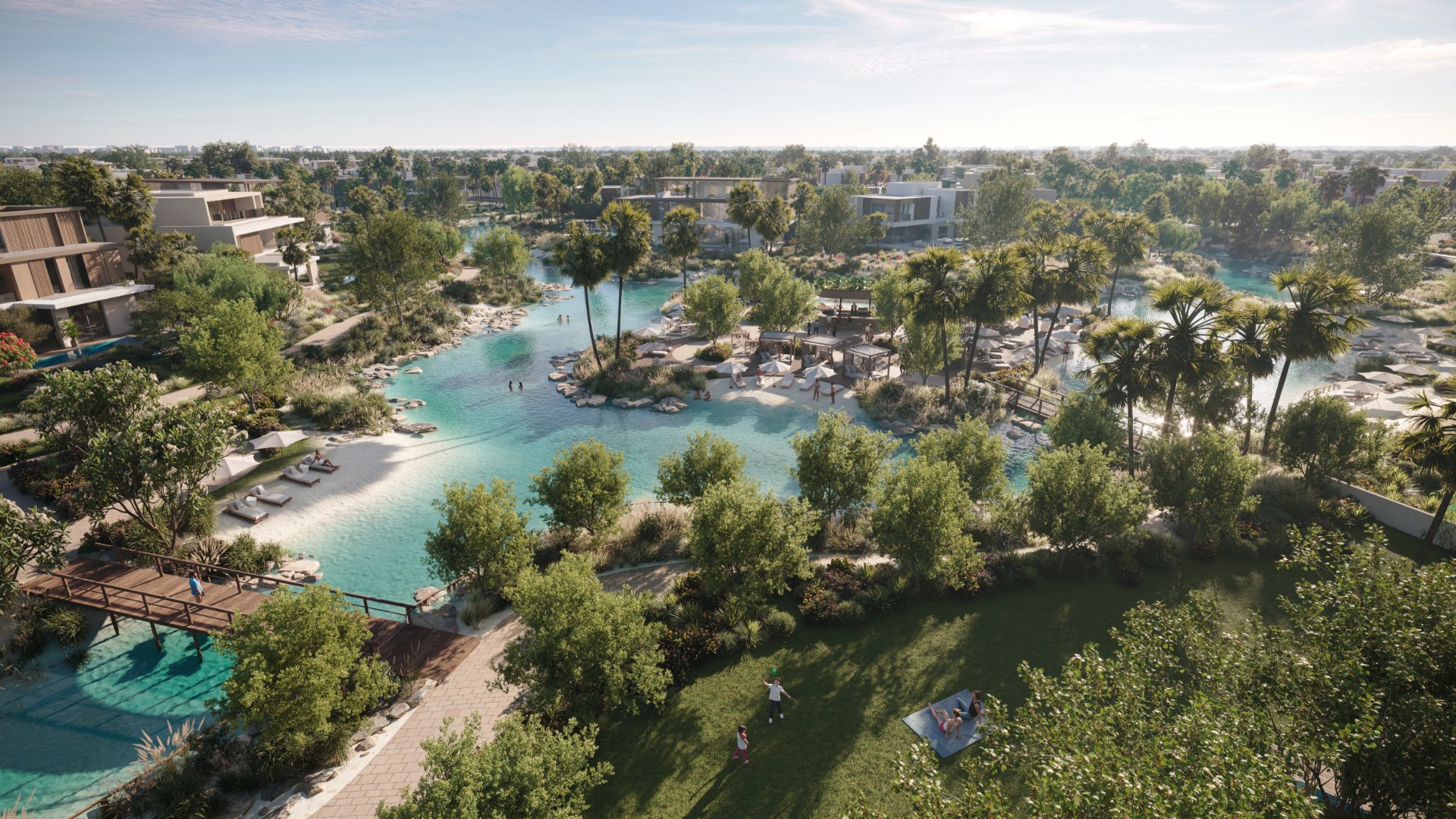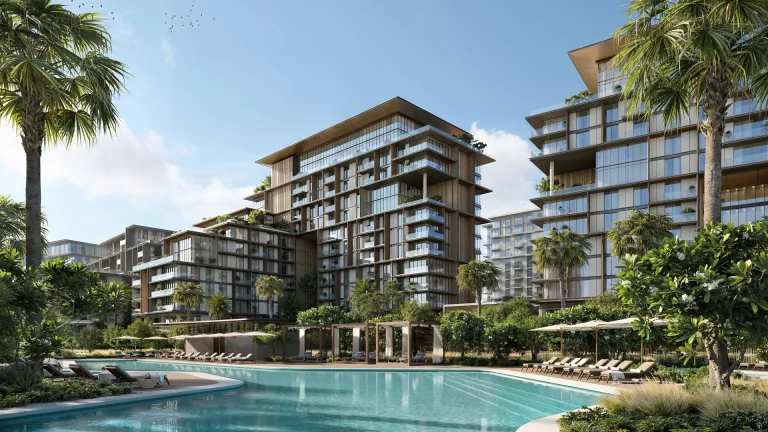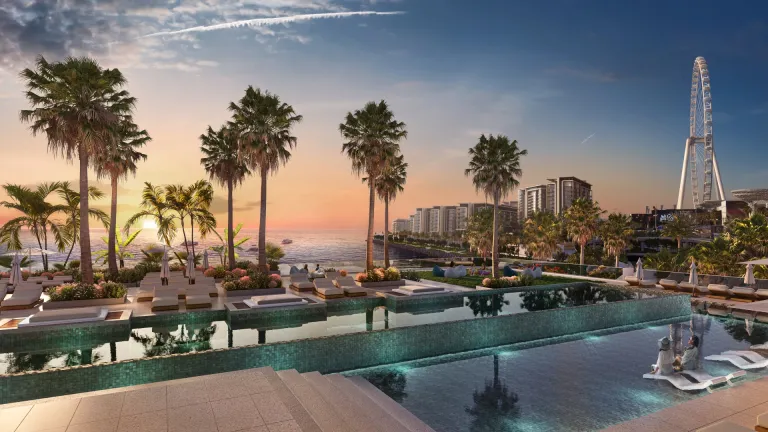No Results Found
Search Results - Blog
Search Results - FAQs
No Results Found
No Result Found
Investing in Meraas' Communities: Everything You Need to Know About Taxes

Meraas’ master-planned communities – such as City Walk, Bluewaters Island and La Mer – are among Dubai’s most sought-after addresses. As one of the top real estate companies in Dubai, Meraas is known for its luxurious and innovative urban projects. This guide explains how to invest in Dubai real estate, including the taxation framework, fees and key market indicators you should know.
What Makes Meraas’ Dubai Communities Attractive for Investors?
Meraas offers plenty of reasons to invest in their properties. But here, let us take a look at the attractive tax environment, which makes investing in Meraas properties even more beneficial.
VAT: Residential vs Commercial
The UAE has a 5% VAT rate, but real estate companies in Dubai are handled differently. In general, 5% VAT is applied to supplies (sales/lease agreements) of commercial real estate. Residential property is typically exempted, with the first supply of a new residential building (within three years of completion) being zero-rated (i.e., suppliers can recover input VAT, but no VAT is charged) (3). Although VAT may be applied to specific service/maintenance fees, investors purchasing homes in Meraas' residential communities usually pay no VAT on the purchase or rent.
Transfer Costs & Recurring Charges:
Dubai’s real estate investment opportunities are huge, as it is an investor-friendly country with no stamp duty, municipal rates or annual property tax. Instead, you will encounter a handful of largely one-off purchase costs and a modest municipal fee that are:
Dubai Land Development (DLD) transfer fee:
4% of the purchase price, which is customarily shared 50/50 in some deals but often paid by the buyer (5).
Title & Admin Fees:
A few hundred dollars and there may be mortgage registration (which is 0.25% of the loan amount) (5).
Municipality Housing fee:
5% of the annual rent is paid monthly via the DEWA utility bill (4).
Market Data Analysis:
Price and income performance are supported by the macro environment. Dubai’s real estate news in market transactions states that Q1 2025 recorded AED 431 billion, with a hike of 25–26% YoY. Recording 125,538 fresh deals, the market reflects deep liquidity and sustained demand (1).
Summary of tax and cost elements of investing in Meraas’ Dubai communities:
Category
Applies to
Rate / Amount
Notes
Personal Income Tax
Rental income & capital gains (individual investors)
0%
No personal tax if the activity is not a licensed business.
Corporate Tax
Licensed property business activity
0% on first AED 375,000 profit; 9% above; 15% top-up for large MNEs
Only applies if activity is a business, not personal investment.
VAT
Residential property
0% or Exempt
Zero-rated for first supply within 3 years; exempt thereafter.
VAT
Commercial property
5%
Applies to sale/lease.
DLD Transfer Fee
All property purchases
4% of purchase price
Usually paid by the buyer.
Mortgage Registration Fee
Properties bought with mortgage
0.25% of loan amount
One-time fee.
Municipality Housing Fee
Occupied or rented property
5% of annual rent
Charged via DEWA bill.
Service Charges
All units
Varies by community
Paid to the Owners' Association.
1), (5), (2)
How to Stay Compliant & Efficient:
- Stay on the right side of investment vs business and seek tax advice if required.
- Check contracts and owners’ association budgets to understand your VAT position.
- Work onthe total cost of ownership to avoid overstating the net yields.
- Use reputable portals and official data to align rents with the market and protect occupancy.
Summary:
With zero personal tax on regular rental income and gains, a VAT-friendly residential property, and no annual property taxes, buy-to-let investors in Meraas’ communities retain more money. When you add in historically high market liquidity and globally competitive gross yields, the investment case for premium, strategically located Meraas properties automatically becomes strong.
FAQs:
Q:What is the personal income tax rate for individual investors in Meraas’ communities?
A: It is 0%. Individual investors pay no personal income tax on regular rental income and gains.
Q:How to invest in real estate Dubai?
A: You can invest in Dubai real estate by selecting a property, conducting due diligence, paying the Dubai Land Department fees, and registering the title deed.
Q:What is the VAT rate on residential property in Dubai?
A: It is 0% or exempt. The first supply of a new residential building within three years of completion is zero-rated; subsequent supplies are typically exempt.


